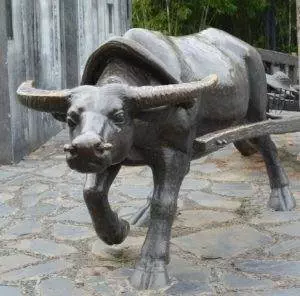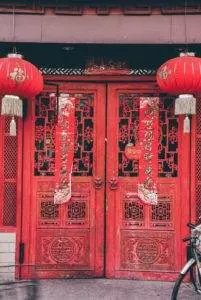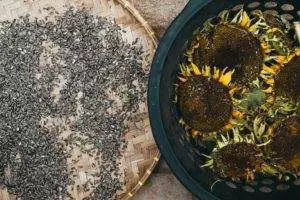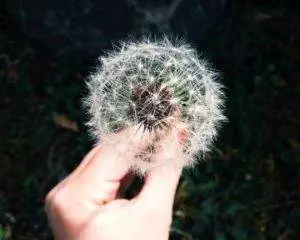-
 Art of Wellness Acupuncture & Traditional Chinese Medicine (TCM)11704 Wilshire Blvd, Suite 295, Los Angeles, CA, 90025
Art of Wellness Acupuncture & Traditional Chinese Medicine (TCM)11704 Wilshire Blvd, Suite 295, Los Angeles, CA, 90025
myartofwellness@gmail.com310-451-5522 Office Hours
MonClosedTue7:30 am --4 pmWed7:30 am --4 pmThu7:30 am -- 4 pmFri7:30 am -- 4 pmSat7:30 am -- 4 pmSunClosedOur office opens from Tuesdays to Saturdays 7:30 am to 4 pm, will be closed on Memorial day, Independent day, Labor day, Thanksgiving day, Christmas and New year.
-
Recent Posts
- How to Treat Chronic Kidney Disease (CKD) With Acupuncture and TCM
- How to Treat Edema With Acupuncture and TCM
- How to Treat Cirrhosis With Acupuncture and TCM
- How to Treat SIBO With Acupuncture and TCM
- How to Treat Pruritus With Acupuncture and TCM
- How to Treat MCAS With Acupuncture and TCM
- How to Treat Shin Splints With Acupuncture and TCM
- How to Treat Dysautonomia With Acupuncture and TCM
- How to Treat Myofascial Pain Syndrome With Acupuncture and TCM
- How to Treat Costochondritis With Acupuncture and TCM
- How to Treat Ankylosing Spondylitis With Acupuncture and TCM
- How to Treat Gastroparesis With Acupuncture and TCM
- Sign up to receive news and updates and get my free report:“The Top 10 Reasons to Try Acupuncture”

Spring
How to Treat Gallbladder Pain With Acupuncture and TCM
By Qineng Tan, L.Ac., Ph.D. and Xiaomei Cai, L.Ac., Ph.D.

Pain on right side abdomen? Sudden, sharp right abdomen pain? This could be a sign of a gallstone or gallbladder issue. Gallbladder attacks can cause severe gallbladder pain. Acupuncture and TCM can provide an alternative or adjunct treatment for gallstones symptoms.
The gallbladder is a small organ located on the right side of your abdomen, under the liver. The liver produces bile, a liquid that helps break down fats into fatty acids. The gallbladder stores bile and releases it into the small intestine as needed, to help with digestion.
When the bile that your body produces has too much cholesterol or bilirubin in it, or when bile is not draining out of the gallbladder properly, it can become too concentrated and begin to harden into a solid.
Gallbladder pain usually occurs because a person has gallstones, which are just what they sound like: little stones that develop inside the gallbladder and are made up mostly of cholesterol. The medical term for gallstones is “cholilithiasis.”
Many people have gallstones and are not aware of it. It is possible to have gallstones with no symptoms at all.
Top 5 Gallstone Symptoms
People who have gallbladder disease or gallstones are likely to experience a condition known as “biliary colic.” This means that they have an intolerance for fatty foods and may experience dyspepsia, nausea, and/or bloating when they eat something that disagrees with them.
Severe, sharp right side stomach pain is the most common sign of a gallbladder attack, which is when a gallstone becomes lodged in one of the small tubes or ducts that lead to and from the liver, gallbladder, and pancreas.
Gallbladder symptoms may include:
- Pain in lower right abdomen
- Nausea and/or vomiting
- Yellow skin and/or yellow eyes, jaundice
- Fever and/or chills
- Brown pee, brown urine, light-colored poop
Sometimes gallbladder pain can refer to the right shoulder, or between the shoulderblades.
Gallbladder pain can also happen due to inflammation of the gallbladder. This condition is known as cholecystitis and occurs when a gallstone blocks the duct that leads out of the bladder, causing bile and bacteria to build up and become infected.
Stones can sometimes become lodged in the common bile duct, which not only causes pain, but can lead to pancreatitis. Gallstones are the primary cause of acute pancreatitis, in which the pancreas becomes irritated and inflamed due to a backup of bile and/or digestive enzymes.
The pain of a gallbladder attack is unignorable. If it doesn’t go away within a few hours, most people choose to go to the emergency room for urgent care.
Gallstones may pass on their own, or drugs are sometimes used to help dissolve the gallstones. These drugs can be expensive, and sometimes cause problems like atherosclerosis, or fatty buildup in the arteries.
When gallstone pain comes and goes, and the gallstones are present but not causing the blockage of a duct, usually pain management and patience are the only treatment.
If gallbladder issues keep coming up, the typical medical treatment is gallbladder surgery.
Acupuncture can offer an alternative treatment to help relieve gallbladder pain. TCM is considered an effective treatment for biliary colic due to gallbladder disease.
Gallbladder Removal

It is very common for people presenting with acute pancreatitis or a gallbladder attack to have a cholecystectomy, or gallbladder removal. Over 300,000 cholecystectomies are performed in the U.S. each year.
While this gallbladder surgery is usually done laparoscopically and is minimally invasive, there are disadvantages to living without a gallbladder.
Some people have what is known as postcholecystectomy syndrome, in which they continue to experience pain on right side abdomen, heartburn, nausea, indigestion, and vomiting, even though their gallbladder is gone.
Some research studies have suggested that gallbladder removal may not be necessary or desirable for everyone. It may be worth considering alternative or adjunct gallbladder pain treatment with TCM and acupuncture.
Can Acupuncture Help Gallbladder Symptoms?
Chinese medicine has been used to treat gallstones for thousands of years, without surgery.
According to TCM theory, the gallbladder is the Yang organ that ideally works cooperatively and in harmony with the Yin liver. The gallbladder is an extraordinary organ in that it is part of the digestive system, but it never comes in direct contact with the food you eat. It stores and secretes bile to help break down fats.
In TCM, we consider the gallbladder to represent the part of our nature that makes decisions, takes action, and feels inspired. When the liver and the gallbladder are not functioning smoothly, we may feel frustrated, angry, and depressed. Repressing anger can exacerbate gallbladder problems, as can eating the wrong foods.

In TCM, the gallbladder is associated with spring, and the wood element. It is best nourished with lots of dark, leafy greens, herbs, roots, and green tea. Eating too many fatty, fried foods, and drinking too much alcohol can have a very negative effect on both the liver and gallbladder.
The stimulation of acupoints along the gallbladder meridian can help to regulate the sphincters of the gallbladder and its action, and help to promote the secretion of bile so that it does not remain stagnant inside the gallbladder.
Acupuncture can also have an analgesic effect that may even be superior to that of NSAIDs pain relief medications, without any of the side effects that may occur with regular use of these drugs.
Acupuncture can also be used to treat chronic cholecystitis, the chronic inflammation of the gallbladder due to infection. TCM treatment can help reduce inflammation and improve immune function so that infections can be more easily fought off.
Acupuncture and TCM can also be used as an adjunct treatment to help boost the efficacy of conventional medications. One study showed that patients who were given cefodizime for chronic cholecystitis and also received acupuncture had a 98% effective rate, as opposed to patients who received the medication only, who had only a 50% effective rate.
There are many Chinese herb preparations designed to help with gallstones. These formulas are based on TCM theories related to clearing the stagnation of Qi and blood in the liver and gallbladder, removing dampness and heat and treating yin deficiency.
These herbs have been shown to help discharge gallstones, control the metabolism of bilirubin, and help to prevent the formation of new stones in the future.
Acupuncture Near Me for Gallbladder Pain in West Los Angeles
Acupuncture and TCM can provide natural treatments for gallstones and many other problems related to the digestive system, such as diarrhea, constipation, Crohn’s disease, colitis, IBS, diverticulitis, and celiac disease. If you are experiencing abdominal pain and other digestive symptoms, consider consulting with a TCM practitioner. Acupuncture can help prevent conditions like gallstones from getting worse.
*This article is for education from the perspective of Traditional Chinese Medicine only. The education provided by this article is not approved by FDA to diagnose, prevent, treat and cure human diseases. It should not stop you from consulting with your physician for your medical conditions. Traditional Chinese Medicine is based on Qi, which is an invisible force that usually cannot be observed by modern science. Because science focuses on testing ideas about the natural world with evidence obtained through observation, these aspects of acupuncture can’t be studied by science. Therefore acupuncture and Chinese herbs are often not supported by double-blind, randomized trials, and they are considered alternative medicine therapies in the United States.
How to Treat Hay Fever With Acupuncture and TCM
By Qineng Tan, L.Ac. Ph.D. & Xiaomei Cai, L.Ac., Ph.D.

Itchy eyes, runny nose and sneezing? These are some of the classic seasonal allergy symptoms, also known as allergic rhinitis, or hay fever. Acupuncture and TCM herbs can help relieve allergies, including pollen allergy symptoms.
Seasonal allergies affect about 20% of Americans. Allergic rhinitis is an immune system reaction to an allergen in the air that can be inhaled, like pollen from budding trees, growing grass, and plants like ragweed. Hay fever is a common term that typically describes being allergic to pollen.
“Pollen” are tiny seeds from plants that can be carried by the wind. When there is lots of pollen in the air, this is called a high pollen count. You can check the pollen count, like a weather report, to see when it is particularly high, and thus may affect people who suffer from seasonal allergies and asthma.
While having an allergic reaction to common airborne allergens happens most often during the spring, summer, and early fall, when plants are giving off a lot of pollen, people can actually experience hay fever at any time of the year.
Similar allergy symptoms can occur due to exposure to dust mites, molds, and pet dander.
Acupuncture and TCM can help relieve the irritating symptoms caused by allergic reactions by helping to strengthen and balance the immune system so that it is not so easily triggered.
Top 10 Seasonal Allergy Symptoms

The body’s histamine response causes inflammation of the mucus membranes in the sinuses and throat. The increased mucus production occurs in order to drive out the offending allergens.
Pollen allergy symptoms are similar to those of the common cold. Signs of hay fever include:
- Sneezing
- Nasal congestion
- Runny nose, itchy nose
- Itchy eyes, watery eyes (allergic conjunctivitis)
- Itchy throat
- Postnasal drip
- Headaches, sinus pain
- Dark circles under eyes, puffy eyes, “allergic shiners”
- Fatigue, malaise, generally feeling under the weather
- Wheezing, coughing, trouble breathing
Skin rash is a less common symptom of seasonal allergies, but some people do develop a hay fever rash. The itchy allergy rash may look similar to hives: raised red welts on the skin.
Treatment for Hay Fever
The common medical treatment for hay fever is an antihistamine. Histamines are chemicals that occur naturally in the body as part of the immune response to allergens in the environment. The release of histamines is what leads to allergy symptoms like a runny nose and itchy eyes.
Antihistamines come in pill or spray form, and they block the histamine response, which can temporarily relieve the hay fever symptoms. However, these medications do have side effects, the most common of which is drowsiness.
If someone is not getting relief from antihistamines, then corticosteroids, or steroids, may be prescribed. These work as anti-inflammatories, which in this case means that they reduce the swelling of mucous membranes. Steroids, too, can have significant side effects, especially when used over a long period of time.
Nasal sprays for allergies, like Flonase or Mucinex, are decongestants that are designed to be sprayed into the nose to help reduce allergy runny nose. Again, these may provide some temporary relief, but people can quickly get used to them, so they stop being effective.
Acupuncture and TCM offer an alternative treatment for allergies that can help relieve hay fever symptoms without side effects.
Can Acupuncture Help Hay Fever?

According to TCM theory, allergies fall under the category of illnesses that are caused by “wind” as a pathogenic force that can invade the body. In the TCM view, hay fever occurs due to wind-heat getting into the lungs.
Weakness of the kidneys and spleen can also contribute to hay fever; when they are sluggish, mucus tends to build up, and we become more easily fatigued.
When the defensive Qi is strong, it can protect us from cold, heat, wind, and dampness getting into the body and causing problems. Defensive Qi is roughly analogous to what we think of as the immune system in conventional medicine.
TCM treatment for allergic rhinitis may include acupuncture, herbal supplements, moxibustion, and nutrition counseling. TCM can be used either as an alternative therapy for allergies, or as an adjunct treatment for hay fever, along with pharmacological treatment.
Chinese herbs have been used for many centuries to treat allergy symptoms. Now, we are able to see scientific evidence that these herbs, such as astragalus, magnolia flower, and licorice root, do actually have an effect on the immune response and histamine function by helping to regulate the production of chemicals like cytotoxic T-cells and immunoglobulin G. Compounds found in scutellaria root have been found to inhibit the production of inflammatory cytokines, and stephania root can help prevent anaphylaxis.
With Chinese herbal medicine, we are able to create customized formulas for each patient, depending on their particular presentation of symptoms.
Acupuncture is a highly effective modality for all types of allergies, from allergic rhinitis to atopic dermatitis or eczema, and can help relieve the nasal sinus symptoms that affect the eyes, nose and mouth if someone is allergic to pollen. It can also help reduce itching due to allergic skin rashes.
A clinical trial conducted at a hospital in China showed that a regimen of acupuncture and herbs resulted in over 90% of patients reporting that their nasal symptoms were greatly reduced.
Another published study showed that acupuncture reduced levels of Immunoglobulin-E, an antibody that is associated with allergy responses.
A review of studies of acupuncture for allergic rhinitis showed that this treatment has both short-term and long-term efficacy.
TCM treatment for seasonal allergies allows us to get to the root cause of allergy symptoms and help prevent them from happening. In this way, acupuncture and herbs can function as preventive medicine for hay fever. Getting acupuncture periodically throughout the year can help you avoid allergy attacks when the pollen count is high.
Top 3 Tips for Hay Fever Prevention
Here are some things you can do to help prevent spring hay fever and relieve pollen allergy symptoms:
- Avoid dairy food and cold foods, which promote more mucus production.
- Apply warm compresses to the face to soothe the eyes and nasal area.
- Use an air purifier in your home to keep allergens out of the environment.
To relieve allergies, emphasize more cooked foods that help warm the body.
Acupuncture Near Me for Hay Fever in Los Angeles Area, Santa Monica
The multifaceted approach of TCM makes it uniquely suited to help relieve seasonal allergy symptoms. Acupuncture can help reduce hay fever symptoms right away and help prevent allergies from knocking you down every time the pollen count is high. Please do not hesitate to seek relief from hay fever by giving acupuncture and herbs a try.
*This article is for education from the perspective of Traditional Chinese Medicine only. The education provided by this article is not approved by FDA to diagnose, prevent, treat and cure human diseases. It should not stop you from consulting with your physician for your medical conditions. Traditional Chinese Medicine is based on Qi, which is an invisible force that usually cannot be observed by modern science. Because science focuses on testing ideas about the natural world with evidence obtained through observation, these aspects of acupuncture can’t be studied by science. Therefore acupuncture and Chinese herbs are often not supported by double-blind, randomized trials, and they are considered alternative medicine therapies in the United States.
Chinese New Year 2021 Year of the Ox
By Qineng Tan, L.Ac., Ph.D. & Xiaomei Cai, L.Ac., Ph.D.

The Chinese New Year celebration will begin on February 12, 2021 this upcoming year. Throughout Asia, the start of the new year according to the lunar calendar is the most exuberant holiday, the time when families gather together to give gifts, eat special foods, honor long-held traditions, and show their love for one another. All around the world, the 2021 New Year holidays will look different, and many families will have to share their New Year greetings from afar. However, the new energy of the Metal Ox, according to Chinese Astrology, offers a way to view our situation with hope and purpose.
In Western astrology, your sun sign derives from the time of the year and place where you were born; whereas in Chinese Astrology, people who share an entire birth year also share a birth sign. The Chinese Astrological calendar runs through a twelve-year cycle.
The Ox is the second of the Chinese zodiac animals, following the Rat, who has been representative of 2020. (Looking back, we can see how the Rat’s frantic energy led to multiplying numbers, and tendencies to hoard.) Like this past year, ruled by the Metal Rat, the Ox is still influenced by the Metal element, which brings strength and steely resolve, but also rigidity, and a tendency to try to do things alone. The Ox, also known as the Cow, is all about hard work and persistence, so the Metal energy is complementary at a time when people, as individuals and as a global community, must work through intense difficulties with the ultimate diligence.
In TCM, the Metal element is considered to be connected in particular to the lungs and respiratory system. It cannot be overemphasized; top priority for the upcoming year must be taking care of your health, protecting and strengthening your Wei Qi (the Qi that helps prevent colds and flus), and getting plenty of rest. If you do not already have a regular practice of deep breathing and meditation in place, now is the time to begin.
Metal Ox, sometimes thought of as “Gold Ox,” or “Iron Ox,” is good at developing relationships, but does so with total, and sometimes brutal, honesty. She will demand truth and righteousness from others, too. In 2021, we have an opportunity to find new ways to build community even as we contemplate a world that feels more isolating than ever.
The metal Ox cannot be manipulated, but will charge straight ahead to tackle obstacles. Ox is ready to be tested; in fact, she relishes the chance to prove herself. On the other hand, Ox can be stubborn and unwilling to listen to alternative ideas that might call for a change of plans. Metal Ox is ready to put in the hard work, not because she seeks reward or accolades, but because without consistent effort, she knows nothing will get done or change. The overall energy of the Metal Cow is Yin, and associated with the cold months of Winter, when seeds and bulbs are buried underground, waiting and developing in quiet darkness.
Chinese Astrology, like Traditional Chinese Medicine, and Chinese philosophy in general, views the world through microcosm and macrocosm. That is, we see the entire universe represented in every living creature; and each individual, by creating harmony within, can help to create harmony in the universe as a whole. As we move into 2021, it feels especially necessary that we all take care of our bodies, our families, our communities, and by doing so, we extend that sense of taking care out to the whole world.
Top 3 Tips for Good Luck in the New Year

Are you an Ox? If so, this year is your “ben ming nian!” Literally translated as the “year of original destiny,” this is the term for when it is “your year;” in other words, the Zodiac sign matches that of the year you were born. It is generally believed that your ben ming nian can be a tumultuous year with a lot of ups and downs. People who want to ensure good luck during their Zodiac Year practice these habits for good fortune:
- Wearing Red – the color red is believed to chase away bad luck, so wearing even a little bit of red – red socks, red underwear – daily is advisable when it is your ben ming nian. However, there is one important point to remember; the red item must be given to you as a gift–not something you buy for yourself. So, now you know what to put on your holiday wish list if you’re an Ox: red accessories!
- Carry or Wear Jade – jade also has protective qualities, and is believed to help bring peace, harmony, and abundance to the wearer. It is common to see people always wearing a favorite pendant or bracelet made of jade.
- Avoid Facing “Tai Sui” – In Chinese Astrology, Tai Sui is a star that opposes Jupiter in the sky, and represents the “God of Age.” Some signs, including the ben ming nian, are in conflict with Tai Sui each year. Feng Shui principles give instructions as to how people who need to avoid “offending” Tai Sui can arrange their furniture so as not to cause unfortunate clashes.
Whatever your sign, the New Year is always a time to clean the house thoroughly, settle all accounts, and get organized so that the beginning of the year truly represents a fresh start.
Find Your Sign in Chinese Astrology

Because your Chinese sign is determined by the Lunar calendar, be sure to check the exact dates of your birth year. People born in January or February may belong to the former or later year.
- Ox 1937, 1949, 1961, 1973, 1985, 1997, 2009
- Tiger 1938, 1950, 1962, 1974, 1986, 1998, 2010
- Rabbit 1939, 1951, 1963, 1975, 1987, 1999, 2011
- Dragon 1940, 1952, 1964, 1976, 1988, 2000, 2012
- Snake 1941, 1953, 1965, 1977, 1989, 2001, 2013
- Horse 1942, 1954,1966, 1978, 1990, 2002, 2014
- Goat 1943, 1955, 1967, 1979, 1991, 2003, 2015
- Monkey 1944, 1956, 1968, 1980, 1992, 2004, 2016
- Rooster 1945, 1957, 1969, 1981, 1993, 2005, 2017
- Dog 1946, 1958, 1970, 1982, 1994, 2006, 2018
- Pig 1947, 1959, 1971, 1983, 1995, 2007, 2019
- Rat 1936, 1948, 1960, 1972, 1984, 1996, 2008
Seeds for the New Year Grow Into Conversations
At New Year’s parties–indeed, at any sort of gathering–you are bound to see a big bowl of unshelled sunflower seeds on the table. In China, people have been preparing seeds to be eaten as a shared snack for centuries. During the Yuan Dynasty (13th-14th century), people would stir-fry and eat melon seeds. Even though nowadays people almost always eat sunflower seeds instead, the common phrase for doing so in Chinese, 吃瓜, is still translated literally as “eating melon seeds,” or even simply “eating watermelon.” This phrase can also mean “gossiping,” because people love to nibble on the seeds while they chat with their friends and relatives.

Traditionally, the seeds are cooked inside their shells, and the shells are left on, which helps them stay fresh longer (about six months), but it also means that they take longer to eat. This is why the habit naturally accompanies long, leisurely talks with friends and family. You can sit for hours, cracking the seed casings open with your teeth one by one, enjoying an activity that occupies your hands and mouth, without actually eating too many seeds.
According to TCM nutrition guidelines, sunflower seeds belong to the category of bitter foods, and are fairly neutral, in terms of yin and yang energies. Baking or frying seeds adds more heat energy, while boiling helps preserve the nutrients better. Sunflower seeds are high in fat, which is what makes them so tasty, so do be sure to enjoy them in moderation, with only a light sprinkling of salt, and lots of good, easy-going conversation!
Best Wishes From All of Us at Art of Wellness
There are many ways to wish friends and loved ones a Happy New Year in Chinese. This year, we want to say to all of our patients and friends: 祝财运亨通 Zhù cáiyùn hēngtōng! I want to wish you longevity and health!
*This article is for education from the perspective of Traditional Chinese Medicine only. The education provided by this article is not approved by FDA to diagnose, prevent, treat and cure human diseases. It should not stop you from consulting with your physician for your medical conditions. Traditional Chinese Medicine is based on Qi, which is an invisible force that usually cannot be observed by modern science. Because science focuses on testing ideas about the natural world with evidence obtained through observation, these aspects of acupuncture can’t be studied by science. Therefore acupuncture and Chinese herbs are often not supported by double-blind, randomized trials, and they are considered alternative medicine therapies in the United States.
How to Treat Allergy With Acupuncture and TCM

By Xiaomei Cai, L.Ac., Ph.D., & Qineng Tan, L.Ac., Ph.D.
Sinus congestion, runny nose, watery eyes? Itchy skin problem or rashes? It may be seasonal allergies, or an allergic reaction to some specific food or chemical. Acupuncture and TCM herbs can not only help to relieve allergy symptoms, but help to strengthen the body’s immune defenses, so that it is less vulnerable to allergens in the environment.
An allergy is when your immune system produces an antibody response to some substance; it could be a reaction to a plant pollen, an insect venom, a chemical in the air, or some type of food. The body is perceiving the foreign substance as a threat and manufactures antibodies to fight against it. A runny nose (rhinitis), watery eyes, itches in different parts of the head and body, and sneezing are the body’s way of trying to throw off the triggering allergens. Allergies can also cause asthma, which is when the body reacts to triggers with inflammation in the lungs and bronchial tubes, leading to coughing, wheezing, and difficulty breathing.
At least 50 million Americans experience some form of allergy symptoms every year, and the number is growing. The ever-increasing amounts of food additives, chemical pollutants, and other triggers in the environment are causing more and more people of all ages to develop allergies. TCM and Acupuncture have been recognized for a while by the WHO as helpful modalities to relieve respiratory illnesses, including seasonal allergies, rhinitis, sinusitis, and allergy-related asthma.
Top 5 Types of Allergies

Different types of allergies create a variety of symptoms. Seasonal allergies only show up at certain times of the year, when a particular pollen or other natural trigger is abundant, while chronic allergies can flare up at any time.
- Pollen Allergies – these are often referred to as “seasonal allergies,” or “hay fever,” and are triggered by natural pollens given off by trees, weeds, grass, and flowers or mold spores, pet dander. These types of allergy cause sneezing and runny nose (rhinitis) and eye allergies, or itchy, watering eyes.
- Insect Allergies – these can refer to the types of acute allergic reactions people have to bug bites (mosquito bites or spider bites) or stings from bees or wasps. It can also refer to respiratory or skin reactions to exposure to dust mites or cockroaches in the home environment.
- Skin Allergies – these include acute skin allergies like the hives or rashes caused by poison ivy or poison oak. They also include skin reactions to latex. Eczema is a more chronic skin allergy condition, where inflammation causes itchy patches of skin that can become very dry and scaly. Dermatitis or eczema often start in childhood. Flare-ups can happen due to external irritants, like certain soaps or detergents, fabrics, ingredients in topical ointments or lotions, or smoke in the air. Stress is also a contributing factor to eczema.
- Food Allergies – food allergies are especially common in children, with over 5% of children in the U.S. diagnosed in recent years. Certain types of nuts, dairy, soy, wheat, and shellfish are the most common food allergens. In some cases, food allergies are so severe that exposure can lead to a life-threatening reaction of anaphylaxis, an emergency situation in which blood pressure can slow down dramatically, and a person may have severe difficulty breathing. Every year, 200,000 people seek emergency medical care for a severe food allergy reaction.
- Drug Allergy – many people have allergic reactions to certain types of medication, including antibiotics, anti-inflammatories, ACE inhibitors, anti-seizure medications, and even aspirin. The most common symptoms of an allergic reaction to medication are: hives or rash, fever, stomach upset, or asthma-like wheezing. A severe drug allergy can also cause anaphylaxis.
Allergy treatment first involves finding out exactly what allergens will potentially cause a reaction. Allergy testing helps determine what, specifically, is triggering the symptoms. Then, a person is encouraged to avoid this trigger as best they can. Many people try over the counter antihistamines, decongestants, and nasal sprays to help manage their allergy symptoms. For more severe allergies, doctors may prescribe corticosteroids in spray, pill, or ointment formulations. Epinephrine injections are necessary to stop severe reactions and prevent anaphylactic shock.
Immunotherapy is an option for some people with a chronic allergic condition. A small amount of the allergen is introduced into the body either via injection (allergy shots) or in a sublingual (under the tongue) form. These can help people build us a better resistance to the allergy trigger over time.
How Can Acupuncture Help Seasonal Allergies?
Modern medical science has made many recent advances in understanding of the human body’s immune system. It is highly complex, and there is still much to learn. In TCM, we have for many centuries been aware of and observed what we call “Wei Qi,” which essentially means protective energy.

TCM always acknowledges dualities and the relationship between opposing and coordinating forces. In every case, we look for internal factors and external factors that are affecting the health of the person. In TCM, the immune system has both internal and external components. The external Wei Qi is a protective force that functions as a shield, blocking external pathogens like wind, dampness, and cold, from entering into the body. The lungs provide the energy to keep Wei Qi strong and especially to keep pathogens from entering through the nose and mouth. However, when Wei Qi is weak, it becomes easy for Wind to enter the head and bring with it other external pathogens, like cold, heat, dampness, or dryness.
According to TCM, a person who suffers from allergies generally has a deficiency of Wei Qi, making them more susceptible to invasions of Wind. Acupuncture treatment might focus, for example, on strengthening the lungs and spleen, which helps to build the Wei Qi back up. Herbal remedies can both relieve hay fever symptoms and rhinitis, and help to tonify the Wei Qi, so that allergic reactions will lessen over time.
One trial found that people were able to reduce their use of allergy medication after an eight-week course of acupuncture treatment for allergies. Another research study found that patients in a control group who received acupuncture reported better control of allergy symptoms during pollen season, with less reliance on antihistamines.
TCM and Acupuncture for Food Allergy
Recent research supports the efficacy of TCM herbs for helping to prevent severe reactions in people who suffer from food allergies. A specific formulation of eight Chinese herbs has been shown to be helpful for reducing the incidence of anaphylaxis in people with various types of food allergies, including milk, dairy, peanuts, tree nuts, and fruits. Herbal creams and herb bath preparations can also help prevent severe reactions, when used consistently for a course of treatment.
An acupuncture practitioner will also use their wide knowledge of nutrition to help patients with Celiac disease, food sensitivities and food intolerance manage their diet. Often, when dealing with allergies and sensitivities, it can be challenging to find what needs to be eliminated, as it is not always immediately obvious to a person which foods or other environmental factors are involved in creating the uncomfortable symptoms. Sometimes a chronic allergy is a sign of a candida infection. A TCM doctor will spend time looking carefully at all of the lifestyle behaviors involved and make appropriate recommendations to help remove hidden triggers.
Top 3 Tips to Help Allergies Naturally
Getting regular acupuncture “tune-ups” is one great, natural way to help relieve allergies. Here are some other ideas you can put into practice to help rid your home and work environment of potential allergens.
- Air Filter – a good-quality HEPA filter will remove particles of pollen, dust, and pet dander from the ambient air. This works best if you also make sure to keep the windows and doors closed when you suspect pollen is heavy in the air outside.
- Probiotics – a recent systematic review showed that taking probiotics can help reduce symptoms of allergic rhinitis. Probiotics help balance gut flora, which we now know is vital to proper immune functioning and prevention of inflammation.
- Wash Your Hands – Manage allergens that come home with you by washing your hands and putting your clothes in the laundry as soon as you get home.
Acupuncture Near Me for Allergy Relief
Seasonal allergies, food allergies, and allergies to chemicals and medication are all on the rise. While people are able to get some relief from conventional medications, TCM treatment offers a viable alternative without the possible side effects of these medicines. Acupuncture can help reduce the need for emergency treatment for severe allergic reactions, and also help prevent hay fever from recurring, year after year. Partner with an acupuncturist near me for allergy treatment now to ensure that when allergy season rolls around again, you are prepared with a strong defense.
*This article is for education from the perspective of Traditional Chinese Medicine only. The education provided by this article is not approved by FDA to diagnose, prevent, treat and cure human diseases. It should not stop you from consulting with your physician for your medical conditions. Traditional Chinese Medicine is based on Qi, which is an invisible force that usually cannot be observed by modern science. Because science focuses on testing ideas about the natural world with evidence obtained through observation, these aspects of acupuncture can’t be studied by science. Therefore acupuncture and Chinese herbs are often not supported by double-blind, randomized trials, and they are considered alternative medicine therapies in the United States.
4 Lifestyle Tweaks to Thrive this Spring
 In traditional Chinese medical theory, one of the best ways to stay healthy is to live in balance with the seasons. Balance, in this context, means mindfully crafting your diet and certain aspects of your lifestyle based on what season it is.
In traditional Chinese medical theory, one of the best ways to stay healthy is to live in balance with the seasons. Balance, in this context, means mindfully crafting your diet and certain aspects of your lifestyle based on what season it is.
An easy way to think about this is with fruits and vegetables: we are lucky these days to have grocery stores stocked year round with fruits and vegetables from every corner of the globe at all times of year. That makes it possible to enjoy asparagus into the winter months in northern climates where asparagus would never naturally grow at that time of year if at all. Chinese medical thought prescribes realigning our diets with what would be available to us in the region where we live and at each time of year. continue reading